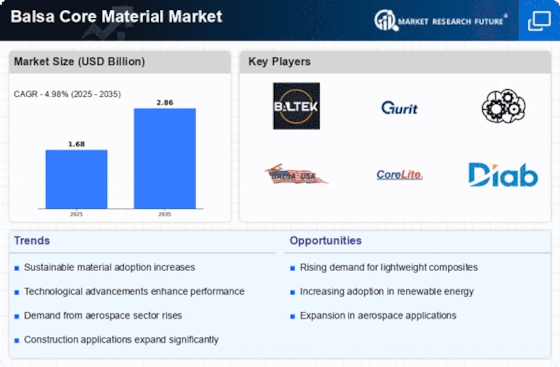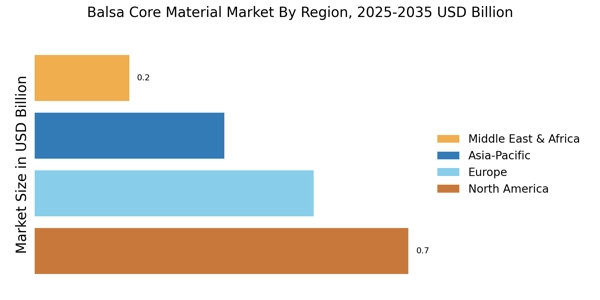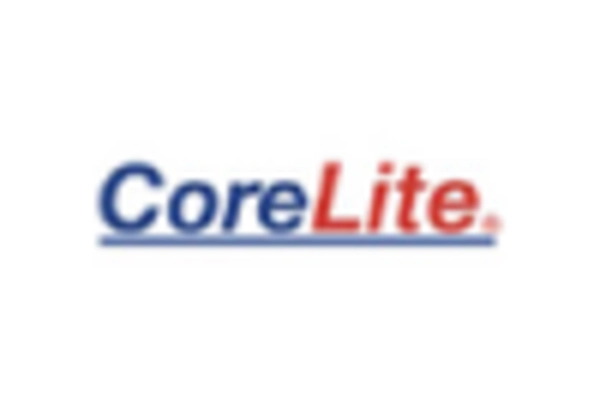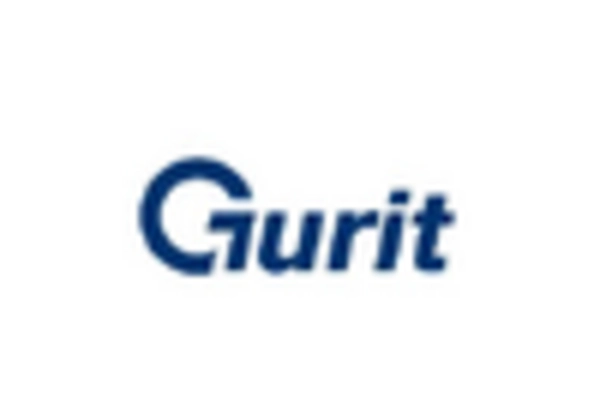Regulatory Support
Regulatory frameworks promoting the use of sustainable materials are likely to bolster the Balsa Core Material Market. Governments worldwide are increasingly implementing policies that encourage the adoption of eco-friendly materials in construction and manufacturing. These regulations often provide incentives for companies that utilize renewable resources, such as balsa wood, in their products. As a result, manufacturers may find themselves more inclined to incorporate balsa core materials into their offerings, aligning with both regulatory requirements and consumer preferences. This supportive regulatory environment could lead to increased investments in balsa core material production, further stimulating market growth.
Technological Innovations
Technological advancements in manufacturing processes are significantly influencing the Balsa Core Material Market. Innovations such as improved bonding techniques and enhanced composite materials are enabling manufacturers to produce balsa core products with superior performance characteristics. For instance, the integration of advanced resin systems has been shown to enhance the durability and strength of balsa core materials, making them more appealing for high-performance applications. As the industry evolves, the adoption of automation and precision engineering is expected to streamline production, potentially reducing costs and increasing output. This technological evolution may lead to a more competitive landscape, further driving the growth of the balsa core material sector.
Sustainability Initiatives
The increasing emphasis on sustainability within various industries appears to be a pivotal driver for the Balsa Core Material Market. As manufacturers seek eco-friendly alternatives, balsa wood, known for its rapid growth and renewability, emerges as a preferred choice. The material's lightweight nature not only contributes to energy efficiency but also aligns with the growing consumer demand for sustainable products. In 2025, the market for sustainable materials is projected to reach substantial figures, indicating a shift towards environmentally responsible sourcing. This trend is likely to bolster the demand for balsa core materials, as companies strive to meet regulatory standards and consumer expectations regarding sustainability.
Diverse End-Use Applications
The versatility of balsa core materials across various sectors is a notable driver for the Balsa Core Material Market. Applications range from aerospace and marine to construction and sporting goods, showcasing the material's adaptability. In the aerospace sector, for example, balsa core materials are utilized in the production of lightweight components, contributing to fuel efficiency and performance. The marine industry also benefits from balsa's buoyancy and strength, making it ideal for boat construction. As industries continue to explore innovative uses for balsa core materials, the market is likely to expand, driven by the demand for lightweight and high-strength solutions.
Growing Demand in Renewable Energy
The rising demand for renewable energy solutions is emerging as a significant driver for the Balsa Core Material Market. Balsa core materials are increasingly being utilized in the production of wind turbine blades and other renewable energy applications due to their lightweight and strong properties. As countries strive to transition towards cleaner energy sources, the need for efficient and durable materials in renewable energy infrastructure is likely to grow. This trend suggests a promising future for the balsa core material sector, as manufacturers respond to the escalating demand for sustainable energy solutions.

















